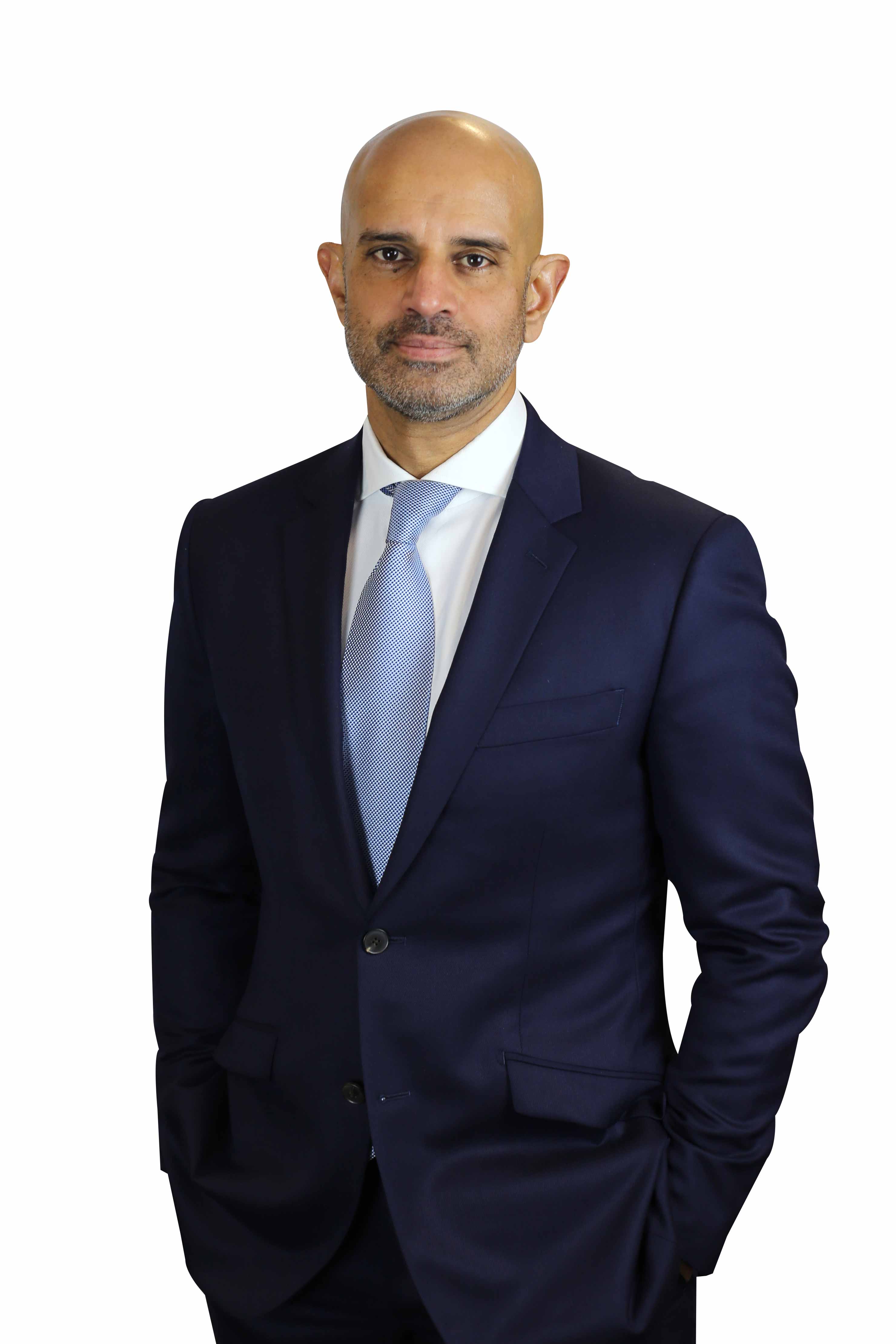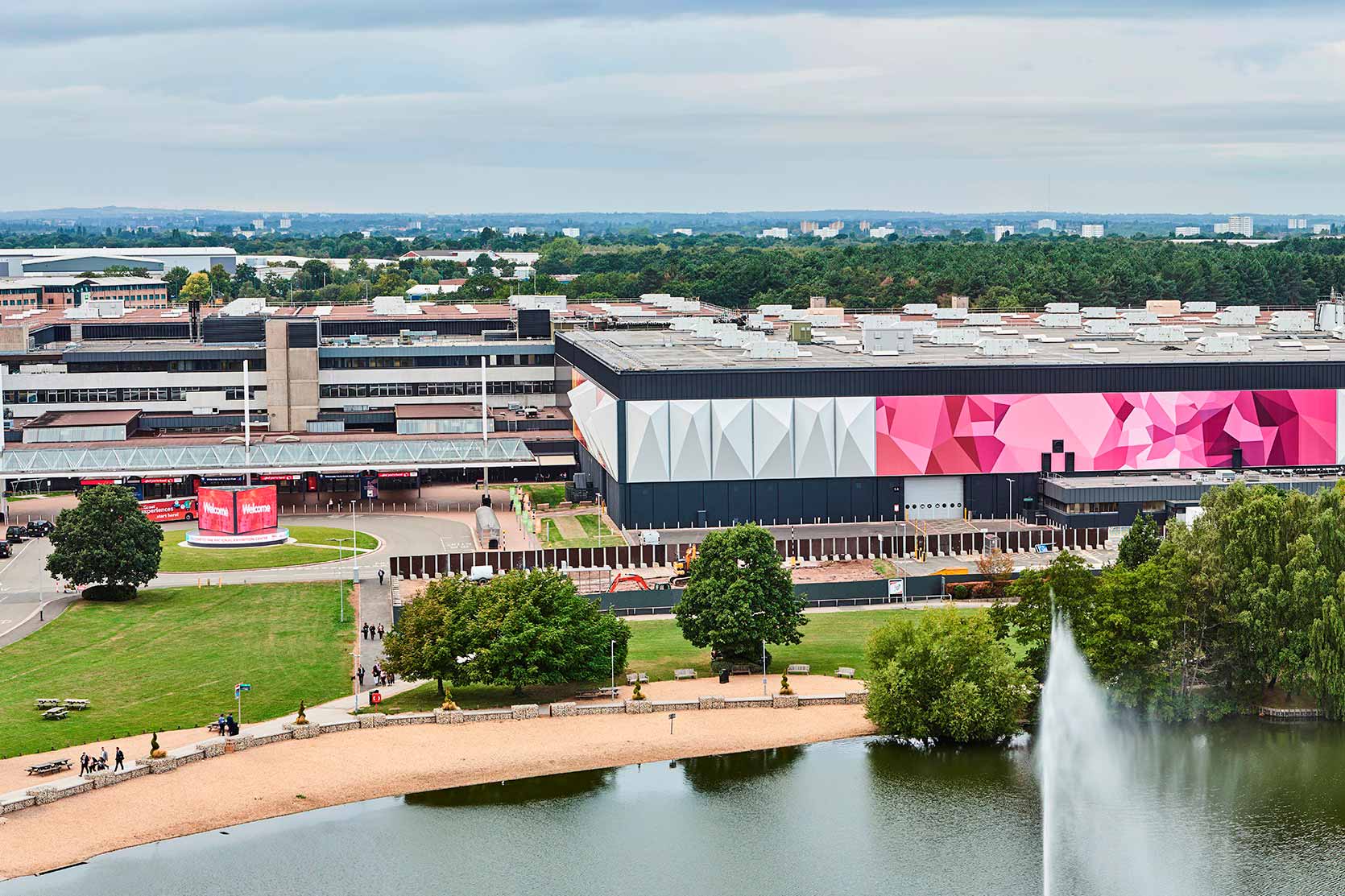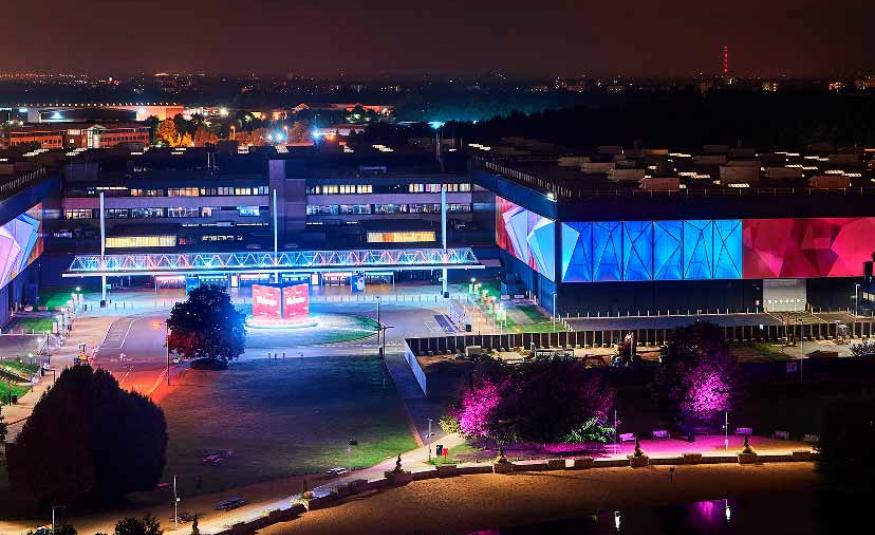Group CEO of the UK’s Birmingham National Exhibition Centre, Paul Thandi, speaks to EW as he leads the Blackstone-backed group in delivering a new end-to-end event ‘resort’ experience. The venue will also show off its Vox Centre as host of UFI’s European Conference, 15-17 May.
How has the acquisition of the NEC Group by Blackstone last October impacted your strategy?
Blackstone have invested into our people strategy and, importantly, our vision to become Europe’s most successful live events business. We have ambitious plans which can now be realised across our existing businesses, real estate opportunities and possible extensions to our current model.
 How is the exhibition business performing and what are your targets?
How is the exhibition business performing and what are your targets?
We have seen double digit growth across our business consistently for the last few years and have similar levels dialled into our plans going forward. 2019 has got good growth in our arenas, catering, ticketing conference and exhibition businesses. Exhibitions are at the heart of our growth.
As a predominately UK-based organisation we continue to be confident in the general landscape, albeit we know that the backdrop of Brexit can present short term headwinds to some sectors our customers operate within.
The NEC is hosting the UFI European Conference in May, a great opportunity to showcase your facilities to global peers.
We’re thrilled to be the first ever UK hosts of the UFI European Conference and we’ll be greeting our international delegates at the Vox, our newest and most technically capable conferencing space. We have seen significant growth at the Vox, since it opened in October 2015.
How can exhibitions be even better drivers of economic growth and how are you working with organisers to achieve results?
We have invested heavily into the visitor and exhibitor offer, particularly in technology and customer service. This is not only our own investment, but we are bringing on third party investment and will be at the forefront of once in a generation infrastructure investment that is now beginning to be made to the communication links in and around the NEC campus and the city centre sites, with the preparation for Commonwealth Games in 2022 and High Speed 2 in 2026.
Our organisers benefit from our knowledge and experience of the ever-changing range of events we’ve hosted over the past 43 years. Data insights on past behaviours, customer segmentation and market categorisation demographic profiling allow us to help our organisers develop their content.
Our ticketing agent, The Ticket Factory, recently launched a new dedicated B2B registration product called Expoware, designed to help customers capture essential insight and data on their audience and behaviours. We have a flexibility within our business to offer models that encompass tenancy, data and ticketing and hospitality to meet best the customers’ needs.
You have experience of different types of venue ownership, wherein lie the strengths and weaknesses of the main public versus private models?
We were owned by Birmingham City Council until 2015 and developed the NEC site considerably whilst under their ownership, growing from just five exhibition halls when we first opened in 1976.
We now have 182,000sqm of covered exhibition space, in 18 interconnecting halls, in addition to 34 conference suites, an arena and a new conference centre together with fully invested existing halls. In the later years under Birmingham City Council’s ownership, however, we had to turn down several opportunities because they fell outside the Council’s governance funding and investment remit.
Private ownership under LDC, and now even more so with Blackstone, has given us the freedom and incentive to realise our latent potential. Blackstone have experience of the live events sector, as well as stellar property credentials.
We have always retained a close relationship with both Birmingham and Solihull Councils, particularly on wider planned developments around our sites, including the Birmingham Airport expansion and around the planned High Speed 2 launch.
Our types of venues around the world are economic regenerators for the regional and national economies of the countries they sit in.
We have recently been chosen as the operating partner for the Bradford Odeon, an historic venue and we will be working with Bradford Live, a not-for-profit charitable trust formed in 2012, to find a long-term viable use for the building.
As a highly commercial and creative private sector operator, with a clear understanding and appreciation of public sector drivers, we are uniquely placed to respond to opportunities such as this.

What would you say to organisers considering Birmingham and the NEC for the first time?
We’re able to offer an end-to-end experience - surpassing many of our rivals – which includes ticketing, ancillary services and award-winning catering. Our NEC campus has become a 24/7 destination, with shops, hotels, bars, restaurants and a casino. A recent partnership with Merlin Entertainments has also seen the launch of another attraction on the NEC campus - the global first Bear Grylls Adventure with its indoor skydiving, assault courses and swimming with sharks!
The NEC site is within a three-hour drive of 75% of the UK’s population and post 2026, a high-speed rail station which will connect us to London in 38 minutes.
Birmingham’s £500m Grand Central Station opened a few years ago and the city centre has benefitted from a development plan across two decades launched in 2012 and which has acted as an umbrella for over £5bn worth of mix use, residential, quality hotel stock, and infrastructure developments. Birmingham boasts the most inward investment from overseas and UK businesses over any other UK region except for central London.
Which organisers are showing creativity and innovation in driving their shows to new levels?
Many of our smaller organisers have been able to work with us to grow their exhibitions and existing shows have upped their game in terms of the content offer. The Running Show, organised by Raccoon Events, is a particularly good example. This year they were able to bring their followers new experiences through access to inspiring speaker including Nikki Love, who ran 63 marathons in 63 days, and Rob Pope, who ran across the USA five times.
This kind of content becomes more than a customer attending an exhibition – it’s tapping into the mantra that anything is possible. Our research and insights team have aided many shows to expand their profiles.
What of festivalisation and other trends to watch for?
In recent years we have seen many other venues incorporate outdoor or festival type experiences into their offer. The ICC Wales has for example, incorporated its outdoor plaza into a space for events and teambuilding activities and our addition of the global first Bear Grylls Adventure at the NEC also taps into this additional teambuilding, sensory offer.
We programme our campus to be the background to lakeside music concerts over the summer and our exhibition halls are interconnected with our 15,600-seater Resort World Arena, offering a unique proposition for events such as Horse of the Year Show and the Crufts dog show.
How are you promoting new talent in the event management industry?
I have personally championed the NEC Group’s relationship with students from our regional colleges and universities.
Every year we promote Event Week Live, run in association with Birmingham City University, which aims to provide on-the-job learning. Five of the most engaged and promising students are chosen to take part in the NEC’s Elite mentor programme.
We’re delighted to have recruited large numbers of local apprentices and I am also Chair of the Skills and Employment Board, a joint initiative between regional government and business to address the skills challenges across the region.
The advice that I always give students is don’t listen and speak in equal measure – we’ve been given two ears and one mouth, so use them in that ratio!





